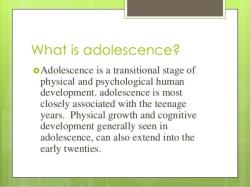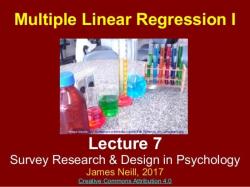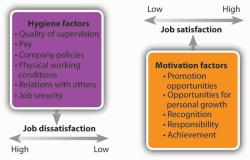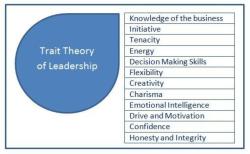What makes each Enneagram angry?
The Enneagram is a personality system that categorizes individuals into nine different types, each with its own unique motivations, fears, and tendencies. While people of the same Enneagram type may express anger in different ways, there are general patterns and triggers associated with each type. Here's a brief overview of what tends to make each Enneagram type angry:
Type 1 - The Reformer:
- What makes them angry: Injustice, incompetence, and disorder. Type 1s are perfectionists who become angered by perceived flaws in themselves and the world around them.
Type 2 - The Helper:
- What makes them angry: Rejection, being unappreciated, and feeling unloved. Type 2s often get angry when they feel their efforts to help and care for others are not reciprocated.
Type 3 - The Achiever:
- What makes them angry: Failure, inefficiency, and obstacles to their goals. Type 3s are driven to succeed, and anything that hinders their progress can trigger anger.
Type 4 - The Individualist:
- What makes them angry: Feeling misunderstood, overlooked, and ordinary. Type 4s desire uniqueness and authenticity, and anything that threatens their sense of individuality can lead to anger.
Type 5 - The Investigator:
- What makes them angry: Intrusion on their privacy, ignorance, and incompetence. Type 5s value knowledge and self-sufficiency, and they may become irritated when their boundaries are crossed.
Type 6 - The Loyalist:
- What makes them angry: Betrayal, uncertainty, and perceived threats. Type 6s are loyal and seek security, so anything that shakes their trust or creates instability can provoke anger.
Type 7 - The Enthusiast:
- What makes them angry: Limitations, boredom, and negative experiences. Type 7s are driven by a desire for pleasure and avoiding pain, so anything that restricts their freedom or brings discomfort can trigger anger.
Type 8 - The Challenger:
- What makes them angry: Injustice, weakness, and being controlled. Type 8s are assertive and protective, and they may react strongly to anything they perceive as a threat or an abuse of power.
Type 9 - The Peacemaker:
- What makes them angry: Conflict, disconnection, and feeling overlooked. Type 9s are easygoing and seek harmony, but repressed anger can emerge when they feel their needs are ignored or when there's tension in their environment.
It's important to note that individual variations exist within each Enneagram type, and people may not always conform precisely to these generalizations. Additionally, the Enneagram system is a tool for self-awareness and personal growth, and it does not dictate or limit behavior.
Sure, here is an overview of Enneagram anger triggers, expressions, and conflict resolution strategies:
1. Anger Triggers for Each Enneagram Type
Each Enneagram type has unique triggers that can set off their anger. These triggers are often related to the type's core fears and motivations. Here are some common anger triggers for each Enneagram type:
Type 1: Perfectionists are triggered by injustice, hypocrisy, and incompetence.
Type 2: Helpers are triggered by feeling unappreciated, ignored, or taken for granted.
Type 3: Achievers are triggered by failure, rejection, or lack of recognition.
Type 4: Individualists are triggered by feeling ordinary, unappreciated, or misunderstood.
Type 5: Observers are triggered by feeling overwhelmed, controlled, or intruded upon.
Type 6: Loyalists are triggered by feeling insecure, threatened, or unsupported.
Type 7: Enthusiasts are triggered by feeling trapped, bored, or limited.
Type 8: Challengers are triggered by injustice, weakness, or disrespect.
Type 9: Peacemakers are triggered by conflict, feeling overwhelmed, or being dismissed.
2. Anger Expression and Management for Each Enneagram Type
Each Enneagram type also has unique ways of expressing and managing their anger. Some types may be more prone to outward outbursts, while others may internalize their anger. Here are some common ways each Enneagram type expresses and manages anger:
Type 1: Perfectionists may become critical, sarcastic, or perfectionistic. They may also suppress their anger, leading to resentment.
Type 2: Helpers may become passive-aggressive, manipulative, or martyr-like. They may also suppress their anger to avoid conflict.
Type 3: Achievers may become competitive, dismissive, or workaholics. They may also suppress their anger to maintain their image.
Type 4: Individualists may become withdrawn, self-pitying, or dramatic. They may also express their anger through creative outlets.
Type 5: Observers may become detached, analytical, or sarcastic. They may also suppress their anger to avoid conflict.
Type 6: Loyalists may become anxious, argumentative, or accusatory. They may also express their anger through worry or cynicism.
Type 7: Enthusiasts may become restless, escapist, or impulsive. They may also suppress their anger to avoid negativity.
Type 8: Challengers may become confrontational, domineering, or argumentative. They may also express their anger through physical activity or assertiveness.
Type 9: Peacemakers may become avoidant, passive-aggressive, or resentful. They may also suppress their anger to maintain peace.
3. Conflict Resolution Strategies Based on Enneagram Types
Understanding your Enneagram type can help you develop strategies for managing conflict more effectively. Here are some tips for each Enneagram type:
Type 1: Learn to accept imperfection and focus on progress rather than perfection.
Type 2: Communicate your needs directly and assertively, and learn to accept help from others.
Type 3: Balance your drive for achievement with self-acceptance and self-care.
Type 4: Embrace your individuality and express your feelings authentically.
Type 5: Engage with the world and develop healthy boundaries to manage anxiety.
Type 6: Seek support from trusted others and develop strategies for managing insecurity.
Type 7: Practice mindfulness and grounding techniques to manage restlessness and avoid escapism.
Type 8: Develop empathy and emotional intelligence to manage anger and aggression.
Type 9: Learn to assert your needs and express your feelings in a healthy way.













